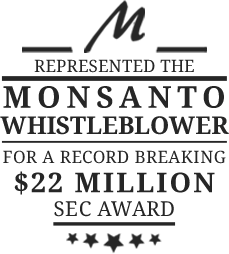Can I Become an SEC Whistleblower if I Signed a Confidentiality Agreement?
When you come into information about potential securities violations, you may be wondering whether a confidentiality agreement with your employer will prevent you from becoming an SEC whistleblower. The majority of stockbrokers and financial advisors will have signed confidentiality agreements with their employers, but are these agreements even legal?
Below, we go into further detail about how a confidentiality agreement could influence your ability to become a whistleblower, and what you should do if you find yourself in a similar situation.
Have You Signed a Confidentiality Agreement?
If you have not signed a confidentiality agreement, there is virtually nothing holding you back from becoming an SEC whistleblower, apart from the risk of retaliation that nearly all whistleblowers will face.
But if you did sign a confidentiality agreement, it is possible that the agreement is not legal and is therefore void. Your attorney will need to carefully examine your contract to determine whether this is true in your case.
SEC Rule 21F-17
The good news is that SEC Rule 21F-17 expressly prohibits companies from threatening to enforce or enforcing a signed confidentiality agreement to prevent an employee from becoming an SEC whistleblower.
Of course, that does not mean your employer won’t retaliate against you by filing a lawsuit, but rest assured, your attorney will do whatever it takes to assist you if your employer chooses to bring forward a claim.
Discuss Your Concerns with a Respected SEC Whistleblower Lawyer
To learn more about what will happen if you signed a confidentiality agreement, meet with a renowned SEC whistleblower lawyer at Meissner Associates to discuss your concerns. You can schedule your confidential tip assessment by calling our firm at 1-866-764-3100 or by submitting the online contact form we have included at the bottom of this page.









